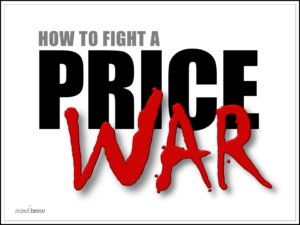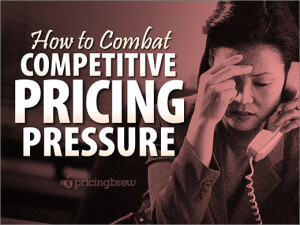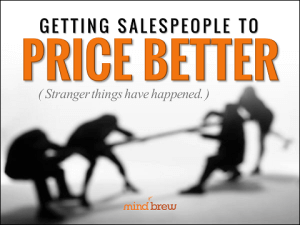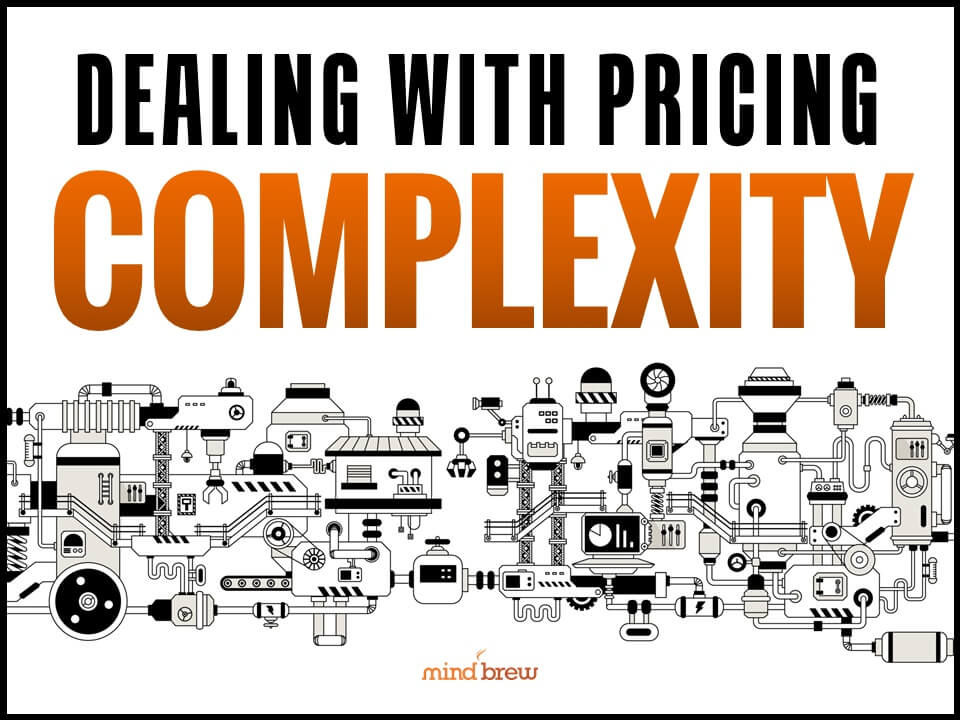Remember that case study in business school where the company initiated a price war to clear the field of lesser competition and gain a positional advantage in the marketplace? Remember that other case where the company launched a preemptive price war in a new category to prevent others from even thinking about entering the space?
And remember that one where the company leveraged its structural cost advantages to start a price war that forced the competition to flounder in a channel they had no experience with?
Lambs to the slaughter. Good times. Good times.
Just curious…did the professor happen to mention that all of those cases were actually edge cases?
A common misperception surrounding price wars is that they are most often started intentionally, based on some highly-strategic rationale. For the most part, the academic literature would have us believe that price wars are initiated in the same manner as World War 2—planned, proactive, and very deliberate.
In reality, however, truly “strategic” and intentional price wars are the exception rather than the rule. In fact, the start of most price wars in B2B will look more like the start of World War 1 than the start of World War 2—i.e. a relatively minor and isolated offense that escalates beyond all reason and rationale.
Here’s an example that may seem eerily familiar:
- In an effort to win the latest internal sales competition (revenue-based, of course), the NW sales team of ABCorp begins offering steep, “one-time” discounts to the long-time customers of a competitor.
- Believing that these drastic pricing actions must be a planned and deliberate attack on one of its core segments, the competitor launches a counter-strike, targeting ABCorp’s customers in the SE region.
- Getting wind of the pricing action in the SE region and believing it to be a planned and deliberate attack, executives at ABCorp launch a counter-strike, targeting the competitor’s customers in the NE region.
And so it goes…on and on…escalating into an all-out price war that ultimately guts the profitability of the entire category and drives both companies to the brink of bankruptcy.
Now, here’s the thing…the sales team that started it all wasn’t being remotely strategic. Nor did they have any intention of starting a price war. They were just trying to win a week in Cancun!
The competitor didn’t know that these actions were just dumb moves on the part of a rogue sales team. They’d been to business school. They’d studied the cases. And this was a textbook attack! So they launched a textbook response!
The executives at ABCorp had no idea that the competitor’s actions in the SE region were actually a response to the dumb actions of their own rogue sales team in the NW region. They’d been to business school. They’d studied the cases. And from their perspective, this was a textbook attack! So they launched a textbook response!
The point is that price wars in B2B are most often started by accident, escalating from a tactical blunder or oversight. And while learning about the “strategic” edge cases is certainly interesting, understanding how price wars typically manifest in the real world is what will help you avoid them altogether.















